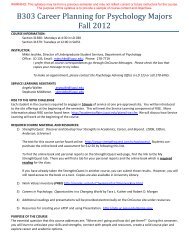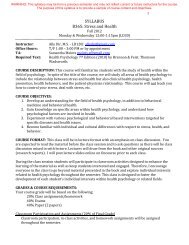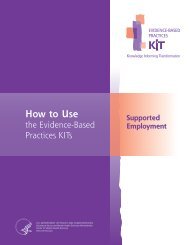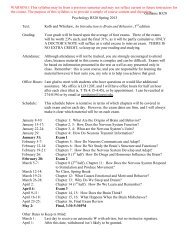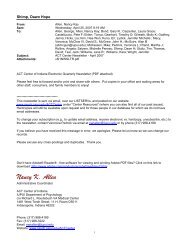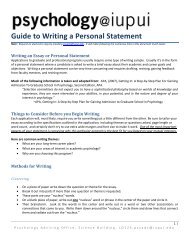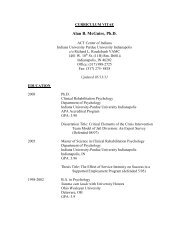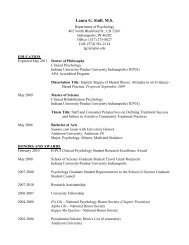Supported Employment: Training Frontline Staff - SAMHSA Store ...
Supported Employment: Training Frontline Staff - SAMHSA Store ...
Supported Employment: Training Frontline Staff - SAMHSA Store ...
Create successful ePaper yourself
Turn your PDF publications into a flip-book with our unique Google optimized e-Paper software.
In addition, using the term disability with<br />
employers serves the purpose of establishing a legal<br />
status for consumers so that, if necessary, they may<br />
benefit from protections under the Americans with<br />
Disabilities Act (ADA). By notifying the employer<br />
that the person has a disability, the employer is<br />
required to provide reasonable accommodations to<br />
help the person carry out the tasks of the job. For<br />
example, someone who has paranoid thoughts may<br />
feel more comfortable if her desk is placed so that<br />
people so not always walk behind her.<br />
While you are deciding when to disclose to<br />
employers and the types of information you<br />
should disclose, remember to provide information<br />
only when it is likely to be helpful. For example,<br />
in Anita’s situation, you might want to let the<br />
employer know at some point that she probably<br />
will work best at a private work station and not<br />
alongside a lot of people because she sometimes<br />
feels fearful around others.<br />
In general, many employers are mostly interested<br />
in employees who will get the job done and are<br />
less interested in their personal backgrounds.<br />
Employers are also interested in potential<br />
employees who have been screened by an<br />
employment specialist as being a good fit with<br />
the job and work environment. They appreciate it<br />
when you offer them backup and support in the<br />
form of followup services, in case the employee has<br />
difficulties on the job.<br />
You will be more successful in negotiating jobs if<br />
you present yourself professionally and confidently.<br />
Over time, you will become skillful in determining<br />
how much information to give prospective<br />
employers. You will find that some employers are<br />
very interested in offering opportunities to qualified<br />
people who have disabilities, and it is common for<br />
employers to have family members or friends who<br />
have a mental illness.<br />
A key to job development is being prepared.<br />
Know how you are going to introduce yourself to<br />
employers. Employers will quickly detect if you<br />
are unsure and hesitant in your job. Rehearse your<br />
script many times before you use it with employers.<br />
If you engage employers confidently because you<br />
truly believe in an individualized job match that<br />
benefits both consumers and employers, you will<br />
have many successes.<br />
Some consumers are willing to disclose their mental<br />
illness to prospective employers and, with these<br />
people, you can play a pivotal role in identifying and<br />
pursuing job leads. Others prefer not to disclose the<br />
psychiatric disorder and, with these people, your<br />
role is to support the consumer in the process of<br />
finding a job, while remaining “behind the scenes.”<br />
Module 3 8 Assessment and Job Finding



